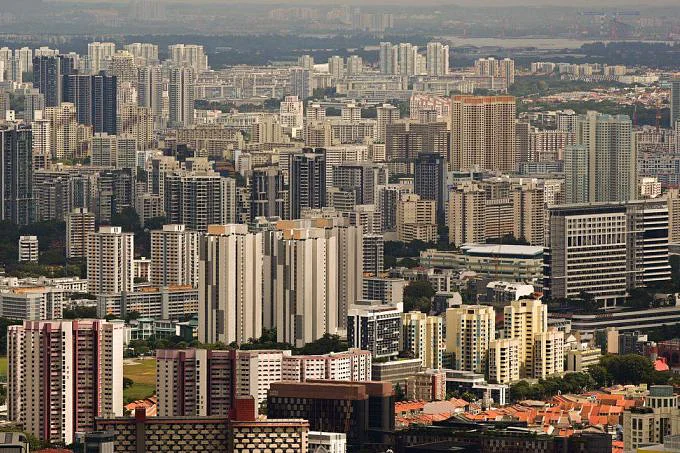
BARELY nine months after a round of property cooling measures that kicked in late 2021, the government unveiled measures that take effect on Sep 30, 2022 to promote sustainable conditions in the property market by ensuring prudent borrowing and moderating demand.
The latest measures are likely to hit demand for and prices of homes. Firstly, the buying power of potential home buyers has been crimped via limiting the amount that buyers can gear up.
A 0.5 percentage point higher medium-term interest rate floor is used to compute the Total Debt Servicing Ratio (TDSR) and Mortgage Servicing Ratio (MSR) for property loans granted by private financial institutions. A floor of a 4 per cent per annum interest rate, up from 3.5 per cent previously, will be used to compute TDSR and MSR for home loans.
The cap on a borrower’s TDSR, which refers to the portion of a borrower’s gross monthly income that goes towards repaying the monthly debt obligations, including the loan being applied for, is 55 per cent. An MSR cap of 30 per cent on the portion of gross monthly income that goes towards repaying all property loans, including the loan being applied for, applies to buyers of HDB flats and executive condominium (EC) units, where the EC’s minimum occupancy period has not expired.
For HDB flat buyers who are seeking a loan from the HDB, an interest rate floor of 3 per cent per annum is used to compute the eligible loan amount available, and the loan-to-value limit for HDB housing loans is cut to 80 per cent, versus 85 per cent previously.
In sum, potential home buyers are able to borrow less. According to consultancy Edmund Tie, a S$1.5 million loan for a private home with a 30-year tenure would now require a higher monthly income of about S$13,000, versus S$12,200 previously, assuming no other debt obligations.
Add to tighter housing loan limits, the fact that home loans are getting pricier amid rising interest rates. A loan that is pegged to the 3-month compounded Singapore overnight rate average (SORA) costs about 180 basis points more now versus the start of the year, with the 3-month SORA at 1.97 per cent as at value date Sep 29, 2022.
Secondly, the pool of potential home buyers may shrink. Previously, private residential property owners could buy a non-subsidised HDB resale flat on the open market, provided they sell their private homes within six months of the HDB flat purchase. Now, there is a wait-out period of 15 months for private homeowners as well as former private homeowners to buy a non-subsidised HDB resale flat. The wait-out period will not apply to seniors aged 55 and above who are moving from their private property to a 4-room or smaller resale flat.
The above move may take the fizz out of the HDB resale market, where there has been a rising number of flats changing hands for S$1 million or more each. A slowdown in the HDB resale market could in turn affect demand for private homes, especially in the suburban segment. An HDB flat owner could find it more tricky to bank on recycling monies from the sale of an HDB home to help fund a private home purchase.
Home prices are on a strong upswing - between Q1 2020 and Q2 2022, private home prices rose 18.9 per cent according to the Urban Redevelopment Authority’s data, with prices of non-landed homes in the Rest of Central Region or city fringe and the Outside Central Region or suburbs up by 26.7 per cent and 17.7 per cent respectively. Meanwhile, the HDB Resale Price Index rose 24.6 per cent over the same period.
Demand drivers for homes include the growth in the number of resident households, which outpaces the growth in the resident population. There are cash-rich buyers, who are unaffected by borrowing limits or rising interest rates, save that there is a higher opportunity cost to forgoing the receipt of say fixed deposit rates when using funds to buy homes.
Some foreigners, who are unfazed by high transaction taxes, hunt for Singapore homes as safe haven assets, with the strength of the Singapore dollar versus many currencies being an added draw. Also, some older persons who are moving from private to HDB homes may be happy with buying 4-room resale flats, particularly in mature estates.
Nonetheless, the strong run in home prices here may come to a halt soon. While the home rental market is strong, the tight supply situation will be gradually alleviated as more new homes are completed.
Developers showed caution, with fewer bids than most property consultants had forecast for two suburban private housing sites and one EC site at state tenders that closed in September. Recently, several tenders of residential en bloc sale sites have closed without a sale. Developers, with residential projects that have yet to be launched, may now be fretting over their ability to move inventory amid higher financing cost.
In mid-September, private home buyers snapped up 508 units, or 84 per cent, of Lentor Modern’s 605 homes over two days. However, home buying sentiment could tone down significantly – home loan rates may continue rising, the borrowing ability of home buyers has been crimped, the fizz will come off the HDB resale market, and economic weakness may affect jobs, wage growth as well as household wealth. And when sentiment turns more negative, people will stop rushing to buy homes for fear of missing out.
Political stability, economic growth and improving infrastructure help support the long term price growth of homes here. But, the government will actively monitor the property market and adjust policies to ensure market sustainability. Do not discount further intervention if deemed needed.